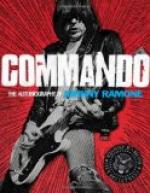It is impossible to enter into the sufferings of the married men. Much was suffered in silence. Some men got messages from their wives imprisoned in refugee camps, bidding them surrender for the sake of their wives, since fighting was of no avail and the country was already lost. Who shall blame the man who rides away with an anxious heart to his wife and children, no matter what the consequences may be to himself? Another woman, with a different disposition and a different heart, sends word secretly to her husband that life in the prison camp is endurable, and that he must fight to the end. Then he stays, and proves himself worthy of the courage of his wife.
Some men gave the impression that they were indifferent to the suffering of wife and child. These were the scum of our people, who in time of peace were not of much importance, but were necessary for our fight. But the majority, by far the greater majority, were men who, even in the most troubled times, were faithful to the comrades with whom they began this struggle, the struggle for our independence.
Whenever we came to a ‘uitspanplek’ (a place where there is water to be found for the horses), some of us had to seek hurriedly for wood to make the fire, others to fetch water, and others to help in various ways. It was a regular struggle for existence. Those who came first got the least disagreeable work. Wood was scarce on the Hoogeveld where we happened to be, and the water was muddied by the first water-carriers. When the sun was very warm we made a shelter with our guns and our blankets. Our meals were simple. They consisted of meat and ‘mealie-pap’ morning, noon, and night, often for weeks without salt. We made coffee of burnt grain ground in a coffee-mill. During the war we learnt to drink all sorts of coffee—of wheat, oats, barley, sweet potatoes, maize, and even of peaches. We became so accustomed to a simple mode of life that our wants were few indeed. Even sugar we no longer missed. And we remained healthy and strong.
We lay in small groups round the fires, leaning against our saddles. Our moods were brighter after our tired bodies had had the needful refreshment and rest. The groups were often picturesque, some of us lying at our ease with soiled books in hands, others grouped round the fire, every now and again adding wood to the flames, and others, again, picking mites out of the biltong with a pocket-knife.
A shower had not much effect upon us. We were accustomed to letting our clothes dry on our bodies. Nature is very kind to people who are day and night in the open air. If the sun did not shine soon after a shower, we made a very deplorable appearance in our dripping clothes. But we never grumbled. We were generally cheerful, unless we were exhausted from fatigue.




